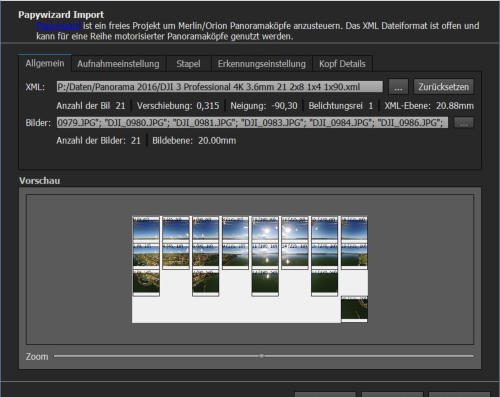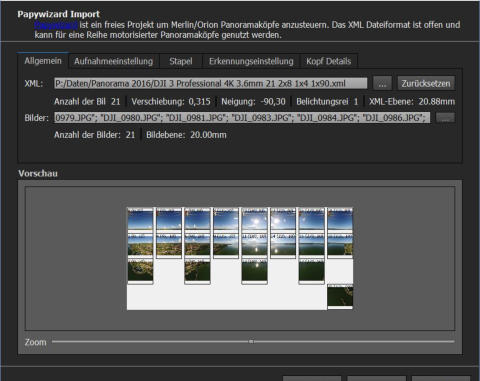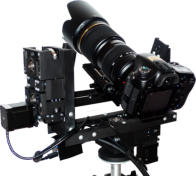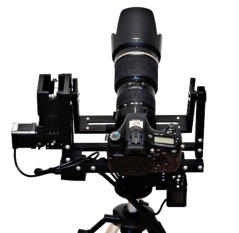
hdrpano, Technische Fotografie, Hardware und Software Entwicklung, © Kilian Eisenegger 2025 info@hdrpano.ch, 3283 Kallnach, Switzerland, HTML 5 optimiert
For a simple panorama from the air at least 19 images are required. These images are stitched together to a complete panor-
ama in a stitching program. The individual images must be rectified and displayed on a virtual spherical surface.
For a drone panorama the zenith where the drone is located has to be completed with sky data. For a tripod panorama from
the ground, the nadir where the tripod is located must be added.
Once the panorama has been assembled, it must be prepared on a web server so that it can be viewed on a PC or mobile
(cell phone or tablet). The panorama is divided into tiles, so that the whole image does not have to be loaded in the full resol-
ution on the PC and the mobile. This is done similar to Google Earth.
On the mobile there is also the possibility to use the gyro sensor. If you move the mobile in one direction, the panorama
moves as well. This function can be switched on and off in the menu on the panorama.
A drone panorama has a medium resolution of 61 to 217 HD screens.
Gear
A panorama gear (robot) moves the camera automatically and precisely in a grid to capture the individual images. A panor- ama is composed of at least 33 images. The more resolution is required from the final image, the more images in a higher focal length have to be photographed. The longer the focal length (telephoto range) the more precise and fast a gear must work. We have designed and produced our gears ourselves. Our gears create an image approximately every 4.5 seconds. They work with stepper motors with 533 steps per degree. The gear is accelerated and braked so that no vibrations occur. A gigapixel image with a very high resolution should be created in a maximum of 3 hours, because otherwise the ambient light changes too much. In 3 hours it is possible to take 2400 pictures. This corresponds to a fixed focal length of 240mm with a full format camera. This results in an image with 300'000 x 150'000 pixels which corresponds to 45 gigapixels. This in turn corresponds to 21'700 HD screens.





Camera
We only use Sony cameras for tripod panoramas. In combination with Zeiss lenses we achieve good results. For the drones we use the Zenmuse X5 camera from DJI with Micro-4/3 lenses. We use lenses with focal lengths from 12mm to 45mm.
Details in the pictures
Panoramas have the advantage that you can interactively view details from images. Every viewer of the picture has his indi- vidual view.



hdrpano, © Kilian Eisenegger 2025, info@hdrpano.ch, 3283 Kallnach, Switzerland

For a simple panorama from the air at least 19 images are
required. These images are stitched together to a complete
panorama in a stitching program. The individual images must
be rectified and displayed on a virtual spherical surface.
For a drone panorama the zenith where the drone is located
has to be completed with sky data. For a tripod panorama from
the ground, the nadir where the tripod is located must be
added.
Once the panorama has been assembled, it must be pre-
pared on a web server so that it can be viewed on a PC or
mobile (cell phone or tablet). The panorama is divided into
tiles, so that the whole image does not have to be loaded in
the full resolution on the PC and the mobile. This is done sim-
ilar to Google Earth.
On the mobile there is also the possibility to use the gyro
sensor. If you move the mobile in one direction, the panor-
ama moves as well. This function can be switched on and off
in the menu on the panorama.
A drone panorama has a medium resolution of 61 to 217 HD
screens.
Gear
A panorama gear (robot) moves the camera automatically and precisely in a grid to capture the individual images. A panor- ama is composed of at least 33 images. The more resolution is required from the final image, the more images in a higher focal length have to be photographed. The longer the focal length (telephoto range) the more precise and fast a gear must work. We have designed and produced our gears ourselves. Our gears create an image approximately every 4.5 seconds. They work with stepper motors with 533 steps per degree. The gear is accelerated and braked so that no vibrations occur. A gigapixel image with a very high resolution should be cre- ated in a maximum of 3 hours, because otherwise the ambient light changes too much. In 3 hours it is possible to take 2400 pictures. This corresponds to a fixed focal length of 240mm with a full format camera. This results in an image with 300'000 x 150'000 pixels which corresponds to 45 gigapixels. This in turn corresponds to 21'700 HD screens.





Camera
We only use Sony cameras for tripod panoramas. In combina- tion with Zeiss lenses we achieve good results. For the drones we use the Zenmuse X5 camera from DJI with Micro-4/3 lenses. We use lenses with focal lengths from 12mm to 45mm.

Details in the pictures
Panoramas have the advantage that you can interactively view details from images. Every viewer of the picture has his indi- vidual view.










